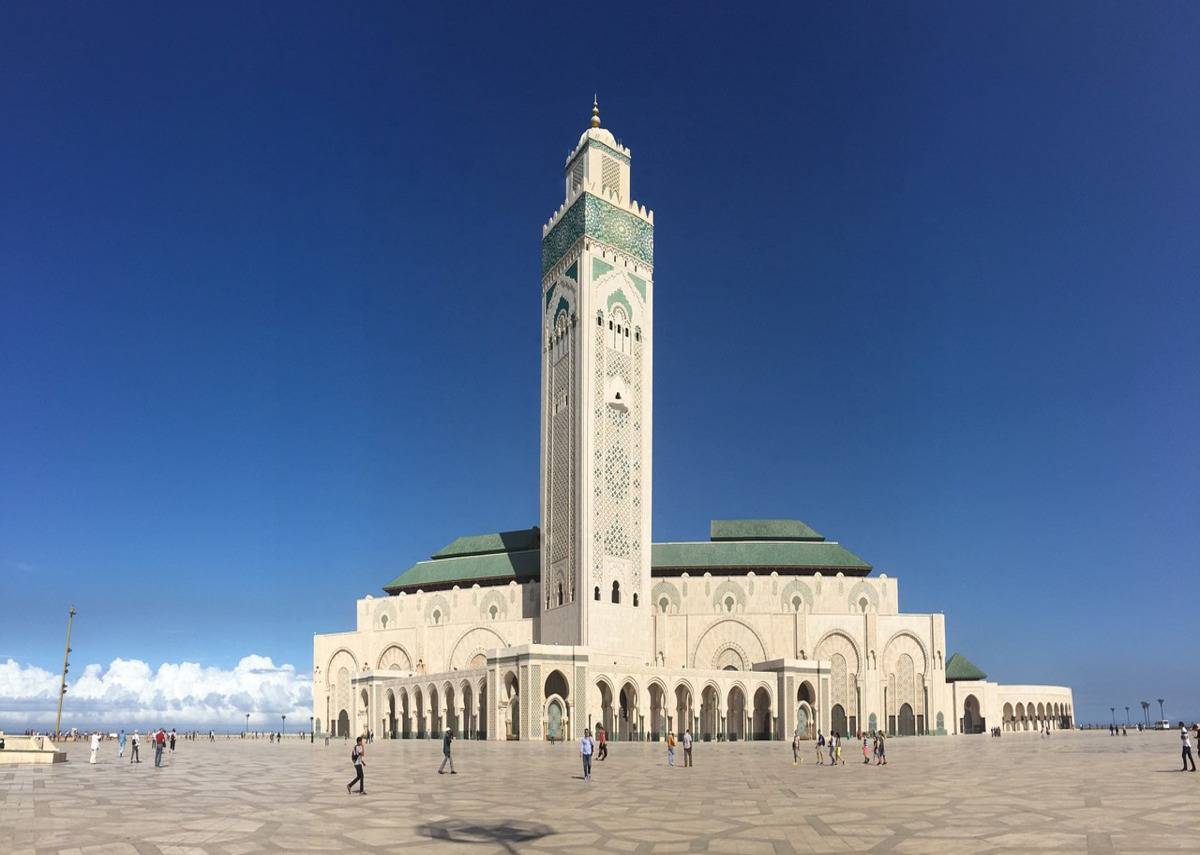Situated along the Moroccan coastline, Casablanca is a dynamic and captivating metropolis that presents a remarkable fusion of historical depth, contemporary flair, and cultural diversity. Its allure lies in a plethora of captivating landmarks, such as the ancient city walls of the Old Medina and the awe-inspiring Art Deco structures that adorn the downtown area. Delving into the city's heritage, you can explore enthralling exhibitions at the Museum of Moroccan Judaism and the Villa des Arts. Dominating the skyline, the Hassan II Mosque stands as a breathtaking architectural marvel and one of the largest mosques globally.
Casablanca's cosmopolitan ambiance and vibrant nocturnal scene further contribute to its allure. Throughout the city, trendy eateries, chic cafes, and stylish lounges abound, offering a diverse array of culinary delights and entertainment options. Immersing oneself in the lively Medina, characterized by labyrinthine streets and bustling markets, is an essential experience for those desiring a taste of traditional Moroccan life.
A: Casablanca is famous for Hassan II Mosque, Economic Hub, Modern Architecture, Vibrant Nightlife, and its cultural scene.
A: frequently visited attractions in Casablanca are Hassan II Mosque, Corniche, Casablanca Cathedral, The Old Medina, Mohammed V Square, Morocco Mall, and Rick's Café.
A: Yes. Many international airlines offer direct flights to Casablanca from major cities around the world.
A: Casablanca has one international airport: Mohammed V International Airport (CMN) and one regional airport: Casablanca-Anfa Airport (CAS).
A: Must-try dishes when visiting Casablanca are Tagine, Pastilla, Harira, Grilled Fish, Couscous, and Moroccan Pastries.
A: Best adventure activities to experience in Casablanca are surfing, jet skiing, rock climbing, paragliding, quad biking, skydiving, horseback riding, and zip lining.
A: While Casablanca is a modern and cosmopolitan city compared to other parts of Morocco, it is still important to dress appropriately to show respect for the local customs and traditions. It is expected to wear clothing that covers your shoulders, chest, and knees. Avoid wearing revealing or tight-fitting clothes. Women may choose to wear loose-fitting pants or skirts along with tops that cover the shoulders. Men should opt for long pants and shirts that cover the shoulders.
A: Cash is accepted at local markets, small shops, and street vendors. Debit and credit cards like MasterCard, American Express, and Visa are generally accepted in larger establishments like hotels, upscale restaurants, shopping malls, and international retail chains. Mobile payment apps like Orange Money and Wafacash are gaining popularity here.
 Best time to visit
Best time to visit Language Spoken
Language Spoken Weather
Weather